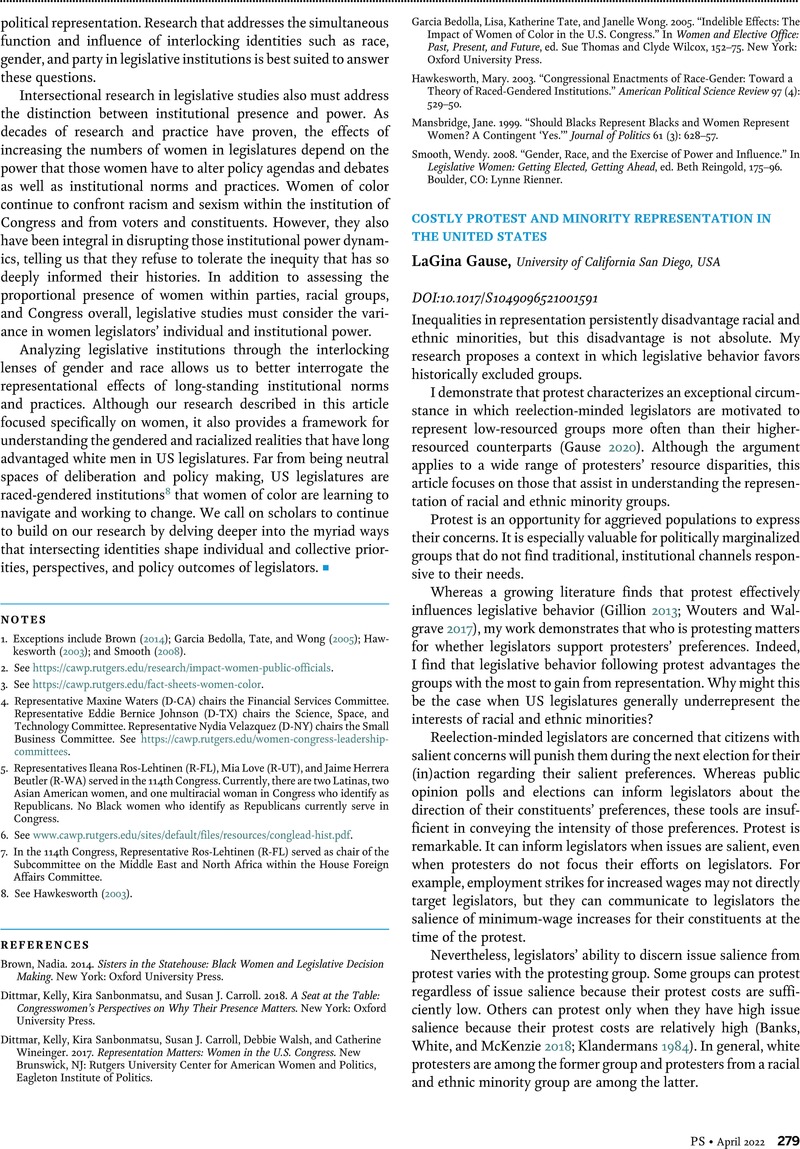Crossref Citations
This article has been cited by the following publications. This list is generated based on data provided by Crossref.
Kann, Claudia
Hashash, Sarah
Steinert-Threlkeld, Zachary
and
Alvarez, R. Michael
2023.
Collective identity in collective action: evidence from the 2020 summer BLM protests.
Frontiers in Political Science,
Vol. 5,
Issue. ,
Koehler, John C.
2024.
Black Leadership Matters: An Organizational and Political Comparison of Black Lives Matter and the Civil Rights Movement.
Sociological Focus,
Vol. 57,
Issue. 4,
p.
601.



